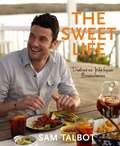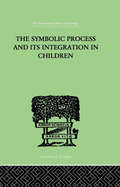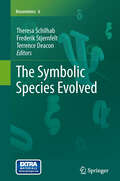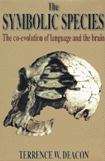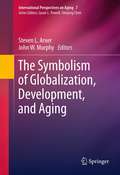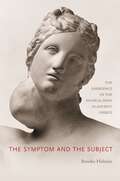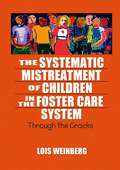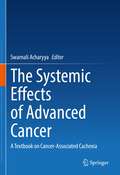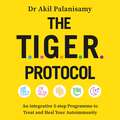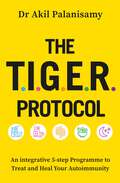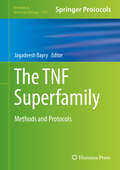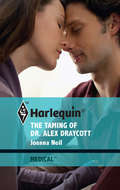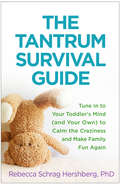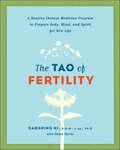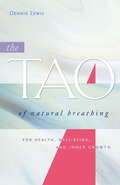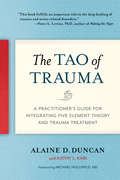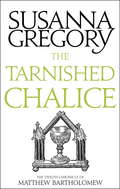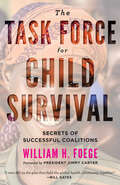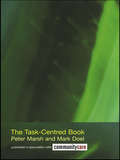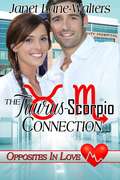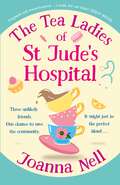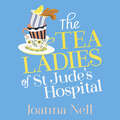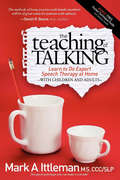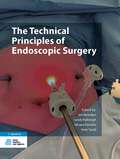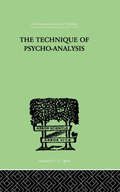- Table View
- List View
The Sweet Life: Diabetes without Boundaries
by Sam TalbotSam Talbot is a professional chef, restaurateur, surfer, painter, philanthropist, and, since the age of 12, type 1 diabetic. Yet he has not let the disease stop him from living a rich life packed with energy, adventure, and achievement--culinary and otherwise. In his first, much-anticipated book, he recounts how diabetes has affected but not compromised his life or career, and he shares his own tips--alongside those from other famous diabetics like Halle Berry, Larry King, and Tommy Lee--on how to handle everything from work and hobbies to relationships and travel with discipline and enthusiasm. To round out this advice, he offers bits of foodie wisdom and 75 innovative recipes for fresh, all-natural dishes anybody, diabetic or not, can prepare and enjoy. Heartfelt, entertaining, and backed by real-life experience and solid medical expertise, The Sweet Life will give readers hope, inspiration, and the proof they need to realize that life with diabetes isn't about diabetes: It's about living.
The Symbolic Process And Its Integration In Children: A STUDY IN SOCIAL PSYCHOLOGY (Midway Reprint Ser.)
by Markey, John FFirst Published in 1999. Routledge is an imprint of Taylor & Francis, an informa company.
The Symbolic Species Evolved
by Theresa Schilhab Frederik Stjernfelt Terrence DeaconThis anthology is a compilation of the best contributions from Symbolic Species Conferences I, II (which took place in 2006, 2007). In 1997 the American anthropologist Terrence Deacon published The Symbolic Species: The Coevolution of Language and the Brain. The book is widely considered a seminal work in the subject of evolutionary cognition. However, Deacons book was the first step - further steps have had to be taken. The proposed anthology is such an important associate. The contributions are written by a wide variety of scholars each with a unique view on evolutionary cognition and the questions raised by Terrence Deacon - emergence in evolution, the origin of language, the semiotic 'missing link', Peirce's semiotics in evolution and biology, biosemiotics, evolutionary cognition, Baldwinian evolution, the neuroscience of linguistic capacities as well as phylogeny of the homo species, primatology, embodied cognition and knowledge types.
The Symbolic Species: The Co-evolution of Language and the Brain
by Terrence W. DeaconTerrence Deacon departs from the conventional theories which state that language arose, somehow, once the human brain became large and complex enough. He argues that the brain and language developed in concert, explains how the process occurred, and draws out the compelling implications of this new view of human origins.
The Symbolism of Globalization, Development, and Aging
by John W. Murphy Steven L. ArxerThis book looks at the symbolic side of globalization, development, and aging. Many of the dimensions that are discussed represent updates of past debates but some are entirely new. In particular, globalization is accompanied by subtle social imagery that profoundly shapes the way institutions and identities are imagined. The process of aging and persons sense of identity is no exception. The underlying assumptions that pervade globalization inform how critical dimensions of aging are discussed and institutionalized. The application of marketplace imagery, for example, may impact attempts for holism in how aging is studied and the prospects for human agency during the aging process. This book offers a special look into how temporality, technology, normativity, and empiricism structure the symbolic side of globalization and influence dominant images of the aging process. Current debates about globalization and aging are expanded by helping readers see the social imagery that is both subtly behind globalization and at the forefront of shaping the aging experience.
The Symptom and the Subject: The Emergence of the Physical Body in Ancient Greece
by Brooke HolmesThe Symptom and the Subject takes an in-depth look at how the physical body first emerged in the West as both an object of knowledge and a mysterious part of the self. Beginning with Homer, moving through classical-era medical treatises, and closing with studies of early ethical philosophy and Euripidean tragedy, this book rewrites the traditional story of the rise of body-soul dualism in ancient Greece. Brooke Holmes demonstrates that as the body (sôma) became a subject of physical inquiry, it decisively changed ancient Greek ideas about the meaning of suffering, the soul, and human nature. By undertaking a new examination of biological and medical evidence from the sixth through fourth centuries BCE, Holmes argues that it was in large part through changing interpretations of symptoms that people began to perceive the physical body with the senses and the mind. Once attributed primarily to social agents like gods and daemons, symptoms began to be explained by physicians in terms of the physical substances hidden inside the person. Imagining a daemonic space inside the person but largely below the threshold of feeling, these physicians helped to radically transform what it meant for human beings to be vulnerable, and ushered in a new ethics centered on the responsibility of taking care of the self. The Symptom and the Subject highlights with fresh importance how classical Greek discoveries made possible new and deeply influential ways of thinking about the human subject.
The Systematic Mistreatment of Children in the Foster Care System: Through the Cracks
by Lois WeinbergThe Systematic Mistreatment of Children in the Foster Care System tells the stories of 10 children in the foster care system from diverse ethnic and cultural backgrounds and the efforts by advocates to find them permanent places to live, appropriate schooling, and other essentials they need to survive. The children’s case studies highlight the difficulties in placing and maintaining them in healthy living situations with supportive educational, mental health, and other services. The book shows how children fall-sometimes over and over again-through the "deep cracks" that exist within and between the various agencies of the multi-agency system of care that was designed to help them. Appropriate placement and services for children in foster care typically requires the coordination and collaboration of several agencies, including the juvenile court, child protective services (CPS), school districts, and departments of mental health (DMH). The Systematic Mistreatment of Children in the Foster Care System shows how these agencies frequently fail to meet their legal obligations to children in the system and what can be done to address these failures-and the outcomes they produce. The Systematic Mistreatment of Children in the Foster Care System includes: an introduction to the child protective services system the general route by which children in the United States are removed from their parents’ custody because or abuse and neglect the major components of the Individuals with Disabilities Education Act and the problems in getting foster children’s educational needs met the difficulties in securing stable out-of-home placements strategies for stabilizing home placements problems in funding for out-of-home placements strategies for advocating the removal of children from inadequate out-of-home placements legislation and practices for bringing about needed policy changes and much more Equally valuable as a professional tool and as a classroom resource, The Systematic Mistreatment of Children in the Foster Care System includes introductions to specific issues presented in each chapter; case studies that illuminate the issues presented; subsections for each case study chapter entitled "Prevention," "Intervention," "Advocacy Considerations," and "What Had Gone Wrong;" boxed items highlighting practical strategies, laws, and other relevant information; and a conclusion and summary of each chapter.
The Systemic Effects of Advanced Cancer: A Textbook on Cancer-Associated Cachexia
by Swarnali AcharyyaThis textbook discusses the systemic consequences of cancer, covering a range of topics from tumor-promoting systemic effects to the development of cachexia, as summarized in the introductory chapter 1. Part I of this textbook focuses on tumor-promoting systemic effects and begins with a chapter on how tumor-derived extracellular vesicles and particles lay the foundation for future metastases (Chapter 2). Chapter 3 discusses how metastatic cells that have colonized the bone impact the local bone microenvironment, neighboring muscles, and host physiology. Chapter 4 summarizes the available strategies for targeting metastatic cancer and emphasizes the need to incorporate a systemic view of the disease. Following this overview of the systemic effects of cancer progression, Part II of the textbook discusses cancer-induced cachexia, a debilitating systemic effect of advanced cancer. Chapters 5-7 examine the key signaling pathways (interleukin-6/GP130, NF-kB, and muscle proteolysis) that drive the development of cancer cachexia. Chapters 8 and 9 in Part III of this textbook explore how toxicities from anti-cancer therapy are associated with the onset of cachexia in cancer patients, and provide insight into potential approaches to simultaneously target both cancer and cachexia. Chapters 10 and 11 (Part IV) conclude this textbook by outlining promising approaches for the diagnosis and treatment of cachexia as well as strategies to prevent the development of cachexia through exercise. An understanding of the systemic effects of cancer is essential for the design of effective anti-cancer and anti-cachexia treatment strategies. As such, this textbook provides key information for both students and scientists engaged in cancer research and oncology.
The T.I.G.E.R. Protocol: An Integrative 5-Step Programme to Treat and Heal Your Autoimmunity
by Dr Akil PalanisamyIncrease your resilience to autoimmune diseases by following Dr Akil's 5-step plan for a balanced and healthy diet.Auto-immune disorders like Graves Disease, Hashimoto's Thyroiditis, Lupus, Coeliac and even Long-Covid, affect an estimated 300 million people worldwide. These disorders can be frustrating as they are difficult to diagnose, painful and often invisible. Now, with this simple yet powerful 5-step plan devised by Dr Akil Palanisamy, readers can learn to treat, tame and potentially reverse painful autoimmune conditions.In The T.I.G.E.R. Protocol, Dr Akil Palanisamy uses his training in Western medicine and complementary therapies to create an integrative approach to treat autoimmune diseases. Addressing five key elements - Toxins, Infections, Gut health, Eating right and Rest and balance - this approach has proved remarkably effective for both patients with full-blown disease and those who had been told they were on the path to autoimmunity.The foundation of this approach is the use of specific healing foods. Diet can be a powerful tool, but autoimmune diets that are typically recommended are often restrictive. Dr Akil's protocol expands the diet to be less draconian while maintaining clinical efficacy, potentially reversing the effects of years of suffering from disease and taking a person off the path to suffering in years to come.The protocol is split into easy-to-follow Phase 1 and Phase 2 diets, allowing you to eliminate the necessary food sensitivities in the short term and then reintroduce foods to achieve a more diverse and balanced diet. It also includes Dr Akil's top 10 healing foods for the microbiome - including mushrooms, artichokes and dark chocolate.(P) 2023 Hachette Audio
The T.I.G.E.R. Protocol: An Integrative 5-Step Programme to Treat and Heal Your Autoimmunity
by Dr Akil PalanisamyAuto-immune disorders like Graves Disease, Hashimoto's Thyroiditis, Lupus, Coeliac and even Long-Covid, affect an estimated 300 million people worldwide. These disorders can be frustrating as they are difficult to diagnose, painful and often invisible. Now, with this simple yet powerful 5-step plan devised by Dr Akil Palanisamy, readers can learn to treat, tame and potentially reverse painful autoimmune conditions.In The T.I.G.E.R. Protocol, Dr Akil Palanisamy uses his training in Western medicine and complementary therapies to create an integrative approach to treat autoimmune diseases. Addressing five key elements - Toxins, Infections, Gut health, Eating right and Rest and balance - this approach has proved remarkably effective for both patients with full-blown disease and those who had been told they were on the path to autoimmunity.The foundation of this approach is the use of specific healing foods. Diet can be a powerful tool, but autoimmune diets that are typically recommended are often restrictive. Dr Akil's protocol expands the diet to be less draconian while maintaining clinical efficacy, potentially reversing the effects of years of suffering from disease and taking a person off the path to suffering in years to come.The protocol is split into easy-to-follow Phase 1 and Phase 2 diets, allowing you to eliminate the necessary food sensitivities in the short term and then reintroduce foods to achieve a more diverse and balanced diet. It also includes Dr Akil's top 10 healing foods for the microbiome - including mushrooms, artichokes and dark chocolate.
The TNF Superfamily
by Jagadeesh BayryExploring these type II trans-membrane proteins, The TNF Superfamily: Methods and Protocols focuses on various techniques to investigate aspects of the TNF Superfamily members in health and disease. Opening with protocols to understand the signaling process of TNF family members, this detailed volume continues with technical examples of investigating the role of TNF family members in physiopathologies, protocols on modulation of TNF signaling by pathogens, experimental applications of TNF-reporter mice, as well as methodologies for various assays of TNF family members and the production of recombinant molecules Written for the Methods in Molecular Biology series, chapters include introductions to their respective topics, lists of the necessary materials and reagents, step-by-step, readily reproducible laboratory protocols and tips on troubleshooting and avoiding known pitfalls. Practical and ready to use, The TNF Superfamily: Methods and Protocols will aid researchers investigating this key family of proteins, involved in vital processes such as providing signals for activation, differentiation, survival and death of cells, modulation of immune response and inflammation, hematopoiesis and osteoclastogenesis.
The Taming of Dr. Alex Draycott
by Joanna NeilThe Taming of Dr Alex Draycott A troublesome little niece and nephew to look after, a crumbling cottage to repair and a busy A&E to run gives Dr Alex Draycott plenty on her plate even before she meets the rebelliously charming Dr Callum Brooksby! Feisty Alex can handle a challenge but it seems Callum is out to tame her heart The Man Behind the Badge However hard citygirl and newdocintown Kayla Morgan tries, she cant resist being impressed by the horseriding, cattleherding, lawenforcing Tom Jamieson! But taking a bullet in the line of duty has made cop Tom rethink his work hard, party harder lifestyle will he ever let Kayla see the real man behind the badge?
The Tantrum Survival Guide: Tune In to Your Toddler's Mind (and Your Own) to Calm the Craziness and Make Family Fun Again
by Daniel J. Siegel Rebecca Schrag HershbergIf you are the parent of a toddler or preschooler, chances are you know a thing or two about tantrums. While those epic meltdowns can certainly be part of "normal" toddler behavior, they are still maddening, stressful, and exhausting--for everyone involved. What can you do to keep your cool and help your child calm down? Rebecca Schrag Hershberg, child psychologist and mother of two, has a unique understanding of both the science behind tantrums and what works in the heat of the moment to nip blowups in the bud. With her customizable plan, you'll learn: *Why your toddler's developing brain is hardwired for "big emotions." *What you may be doing (unintentionally) to encourage outbursts. *Ways to use structure and routines to help your child feel secure. *How to reduce tantrums at tough times of day, from wake-up to bedtime. *Strategies for managing tantrums under difficult circumstances, from travel to moving to divorce. *Ways to deepen your parent–child connection--starting right now.
The Tao of Fertility: A Healing Chinese Medicine Program to Prepare Body, Mind, and Spirit for New Life
by Dana Herko Daoshing NiAn esteemed doctor who has helped countless women achieve their dream of having a child offers his program for enhancing fertility through traditional Chinese medicine (TCM). Dr. Daoshing Ni, descended from more than 70 generations of Taoist masters, has achieved renown among high-tech infertility specialists, TCM practitioners, and his many devoted patients. The Tao of Fertility is the first book combining a practical plan for conceiving using TCM with empowering Taoist principles that can carry you through pregnancy, childbirth, and beyond. Structured according to a woman’s journey to conception, The Tao of Fertility includes: A questionnaire assessing fertility potential A 28-day fertility enhancement programSimple meditations and acupressure points to improve reproductive circulation and relaxationGuidelines for mapping your fertility using Chinese methods of diagnosisInformation on how herbs and acupuncture can increase fertilityEating plans for pregnancy, postpartum, and while breast-feeding. and much moreEnriched by moving stories of women who became pregnant using TCM, this is a compassionate, comprehensive handbook.
The Tao of Natural Breathing
by Dennis Lewis Master Mantak ChiaDennis Lewis draws on his many years of study in the Gurdjieff work, Advaita Vedanta, and Taoism to show how natural, whole-body breathing can improve health, increase energy, and support the quest for inner growth. Along with breathing practices designed to open the three primal energy centers, the book defines natural breathing; provides a clear, illustrated description of the physiology of breathing; and offers suggestions on how to use spacious breathing both in times of stress and in everyday life.
The Tao of Trauma: A Practitioner's Guide for Integrating Five Element Theory and Trauma Treatment
by Kathy L. Kain Alaine D. Duncan M.D. Hollifield MichaelExplains trauma using a combination of the Five Elements (from Traditional Chinese Medicine) and a touch perspective; for practitioners of a variety of modalities, including acupuncturists, somatic therapists, massage therapists, and mental health providers.Combining Eastern and Western trauma physiology, clinician-educators Alaine Duncan and Kathy Kain introduce a new map for acupuncturists, medical practitioners, mental health providers, and body-oriented clinicians to help restore balance in their patients. Using concepts from Acupuncture and Asian Medicine (AAM), alongside descriptions of the threat response from Western bio-behavioral science, they describe common physical symptoms, emotional presentations, and paths for healing for five survivor "types" detailed by the authors and correlated to the Five Elements of AAM. This ancient/modern integrative lens illuminates the diverse manifestations of traumatic stress in its survivors--chronic pain, autoimmune illness, insomnia, metabolic problems, and mental health disorders--and brings new hope to survivors of trauma and those who treat them.
The Tarnished Chalice: The Twelfth Chronicle of Matthew Bartholomew (Chronicles of Matthew Bartholomew #12)
by Susanna GregoryFor the twentieth anniversary of the start of the Matthew Bartholomew series, Sphere is delighted to reissue all of the medieval monk's cases with beautiful new series-style covers.------------------------------------The winter of 1353 has been appallingly wet, there is a fever outbreak amongst the poorer townspeople and the country is not yet fully recovered from the aftermath of the plague. The increasing reputation and wealth of the Cambridge colleges are causing dangerous tensions between the town, Church and University. Matthew Bartholomew is called to look into the deaths of three members of the University of who died from drinking poisoned wine, and soon he stumbles upon criminal activities that implicate his relatives, friends and colleagues - so he must solve the case before matters in the town get out of hand...On a bitter winter evening in 1356, Matthew Bartholomew, Brother Michael and their book-bearer Cynric arrive in Lincoln. Michael is to accept an honour from the cathedral, and Bartholomew is looking for the woman he wants to marry. It is not long before they learn that the friary in which they are staying is not the safe haven they imagine - one guest has already been murdered. It soon emerges that the dead man was holding the Hugh Chalice, a Lincoln relic with a curiously bloody history. Bartholomew and Michael are soon drawn into a web of murder, lies and suspicion in a city where neither knows who can be trusted.
The Task Force for Child Survival: Secrets of Successful Coalitions
by William W. FoegeHow did coalition-building give rise to the incredible achievements of the Task Force for Childhood Survival?Dr. Bill Foege, one of the best-known names in global health, brings readers to the table during the creation of one of the world’s most famous and successful global health efforts—the Task Force for Child Survival.In 1984, the US immunization program was so successful that many childhood diseases were at record lows—yet 40,000 children a day were dying around the world from preventable diseases. That year, Dr. Foege, former director of the Centers for Disease Control and Prevention, came together with Jonas Salk, Robert McNamara, and representatives from UNICEF, the World Health Organization, the World Bank, the United Nations Development Programme, and the Rockefeller Foundation to see how some of the lessons learned in America could be applied to global programs. The assembled participants recommended the formation of a small task force to help UN agencies improve immunization coverage. They dubbed it the Task Force for Child Survival and installed Foege as its first leader.In this book, Dr. Foege describes the task force from its conception through its landmark success. Over its first six years, as more resources were allocated to the task force, immunization coverage climbed from approximately 15 percent of the world’s children for some vaccines to 80 percent of the world’s children for at least one vaccine. UNICEF head Jim Grant called it the greatest peacetime endeavor the world had ever seen. How did this small, independent, low-profile group leverage change in the largest of global health agencies? Foege dissects each element for clues as to why the task force was able to accomplish so much so quickly, ultimately concluding that coalition-building played a major role and explaining how to strengthen coalitions by scrupulously avoiding the turf guarding and credit seeking that are so common to international endeavors.Inspiring and accessible, this brief book combines the distilled advice of one of global health's major leaders with the history of an iconic public health program.
The Task-Centred Book (The Social Work Skills Series)
by Mark Doel Peter MarshTask centred social work is one of the best known and most strongly supported approaches to social work practice. This text is a radical departure from traditional literature on social work methods. The main reference point is the voice of practitioners, service users and carers, as researched and developed by the authors over twenty years. Case studies are used throughout the book to build on the experiences of practitioners and the people with whom they have worked, demonstrating practical skills for: study and analysis teaching and learning practicing task-centred social work review and continuing development. The Task-Centred Book is a core text for both undergraduate social work courses and continuing professional development training, as well as being a practical book for the active professional which will support the development and implementation of task-centred practice.
The Taurus-Scorpio Connection (Opposites in Love, Medical Zodiac Romances #2)
by Janet Lane-Walters Canada Jude PittmanCan these two find a way to uncover the underhanded events at the hospital? They’re on opposite sides but the attraction between them is strong. She’s a widow who fought to save her husband’s life during a code. She feels guilty because the love she and her husband shared had died before his death. He assisted at the code but he feels guilty since he was the one who was responsible for the short staffing the night her husband died. Now they face falling in love and trying to solve the problems between the nurse’s union and the president of the hospital’s Board who wants a take over of the hospital by his hospital group. Is their connection strong enough to survive?
The Tea Ladies of St Jude's Hospital: A completely uplifting and hilarious novel of friendship and community spirit to warm your heart
by Joanna Nell'Heartwarming and full of loveliness. A great read' Reader review ⭐⭐⭐⭐⭐'I loved it!... One to tug at the heart strings, could not put it down. Wonderful' Reader review ⭐⭐⭐⭐⭐'Delightful! Absolutely delightful!... A story about friendship, family, new beginnings, and love, this book left me with such a warm, fuzzy feeling, and was a joy to read' Reader review ⭐⭐⭐⭐⭐ Three unlikely friends. One chance to save the community. It might just be the perfect blend.... The Marjorie Marshall Memorial Cafeteria is at the heart of St Jude's Hospital. Staffed by successive generations of dedicated volunteers, for over fifty years the beloved cafeteria has been serving up a kind word and sympathetic ear along with tea and scones. Hilary, the stalwart Manageress, has worked her way up through the ranks; Joy, the latest recruit, is driving Hilary mad by arriving late every day; and seventeen-year-old Chloe, the daughter of two successful surgeons, is volunteering in the holidays and bemused by the older women. But when they discover the cafeteria is under threat of closure, the unlikely trio must put aside their differences. As they realise the secrets and sorrows they have in common, the women grow closer - but can they bring the community together and save the day? Full of wisdom and warmth, this is a gorgeously poignant, hilarious story about unlikely friendships, growing old disgracefully, and coming together to save the things we love. Fans of Judy Leigh, Jill Mansell and Sally Page will be hooked from the very first page. Readers love The Tea Ladies of St Jude's Hospital: 'Heartwarming, witty, touching and just all-round lovely to read, I thoroughly recommend this, and all other Joanna Nell books for anyone who loves a cosy, people-centred story about strength, hope, and found family' Reader review ⭐⭐⭐⭐⭐'A mix of quirky characters volunteer at the old cafeteria at St Jude's Hospital... Great characters, nice depth, and some great twists and turns, leaves you full and satisfied at the end. I just want one of Joy's scones to make it complete!' Reader review ⭐⭐⭐⭐⭐'Uplifting book full of heart... An easy and fabulous read and one I got through in no time, how I loved them all and enjoyed their adventure immensely' Reader review ⭐⭐⭐⭐⭐'This was a lovely heart-warming story. At times really funny but with moments that have you reaching for the tissues this was a lovely cosy read' Reader review ⭐⭐⭐⭐⭐ Praise for Joanna Nell: 'Hugely entertaining . . . funny and heart-warming' Woman & Home 'Warm-hearted book that had me rooting for all the characters and laughing out loud' Libby Page, author of The Lido'Poignant and warm-hearted . . . a tonic for our times' Holly Miller, author of The Sight of You 'A warm and touching story with a cast of characters who became my friends' Katie Marsh, author of How Not to Murder Your Ex 'A funny and poignant exploration of growing old disgracefully' Culturefly
The Tea Ladies of St Jude's Hospital: The uplifting and poignant story you need in 2022
by Joanna NellThe heartwarming and hilarious new novel from the bestselling author of THE SINGLE LADIES OF JACARANDA RETIREMENT VILLAGE.Three unlikely friends. A lot of scones. And one chance to save the community...The Marjorie Marshall Memorial Cafeteria is at the heart of St Jude's Hospital. Staffed by successive generations of dedicated volunteers, for over fifty years the beloved cafeteria has been serving up a kind word and sympathetic ear along with tea and scones. Hilary, the stalwart Manageress, has worked her way up through the ranks; Jo, the latest recruit, is driving Hilary mad by arriving late every day; and seventeen-year-old Chloe, the daughter of two successful surgeons, is volunteering in the holidays and bemused by the older women. But when they discover the cafeteria is under threat of closure, the unlikely trio must put aside their differences. As they realise the secrets and sorrows they have in common, the women grow closer - but can they bring the community together and save the day? Full of wisdom and warmth, The Tea Ladies of St Jude's Hospital is a gorgeously poignant, hilarious story about unlikely friendships, growing old disgracefully, and coming together to save the things we love...(P) 2022 Hachette Australia
The Teaching of Talking: Learn to Do Expert Speech Therapy at Home with Children and Adults
by Mark A. IttlemanIn this guide, a speech pathologist teaches readers the methods implemented to improve talking in others, so if need be, they can do therapy on their own. People with speaking difficulties are at the mercy of insurance companies who are determining how often and for how long speech therapy services should be delivered. It is also a disturbing reality that the likelihood for therapy frequency and length of care is contingent upon either the level of competence or comfort level of the speech-language pathologist or the financial policies of each institution. Often it has nothing to do with the severity or need for speech therapy. Our health care system is in no position to bankroll the long-term therapy needed by the many people who have moderate to profound speaking difficulties. The goal of The Teaching of Talking is to ensure that any loved one, caregiver, or speech-language pathologist is thoroughly knowledgeable in methods to help people improve talking since it is never known when the plug will be pulled on speech and language therapy services. Ittleman says, &“I see hundreds of people with speech and language difficulties each year. By reading and applying The Teaching of Talking, you will have the confidence to help your client or loved one, no matter what the insurance company or institution does. By learning to do what is in The Teaching of Talking, you will be more self-sufficient and will not have to rely on anyone to provide your loved one with expert speech therapy.&”&“The methods of home practice with family members will be of great value for patients with aphasia.&” —Daniel R. Boone, PhD, CCC/SLP
The Technical Principles of Endoscopic Surgery
by Ivo Broeders Sandy Kalisingh Silvana Perretta Amir SzoldThe introduction of laparoscopic surgery as a standard technique marked a revolution in operating theaters around the globe. Over thirty years later, almost every disorder in the thorax and abdomen eligible for surgery can be approached by endoscopic techniques. We have witnessed a unique journey of technical innovations that enables surgeons to work with this minimally invasive approach in the most complex procedures.Benefits to the patient are clear, by reducing external and internal trauma, and surgeons are supported by advanced technology that has increased their options to see, dissect and repair in ways that were beyond imagination. With the new options came a completely new working environment,that is dictated by advanced surgical and digital technologies. This requires investment in a new knowledge domain, while medical and surgical training still strongly focusses on anatomy, physiology and pathology.The lack of in-depth knowledge on high tech surgical equipment and workplaces is recognized among surgeons and OR staff, but educational programs are late to adapt. This book fulfills the need for a comprehensive overview on a wide variety of technical aspects of endoscopic surgery, that need to be understood in detail before starting to work in practice. In this book, international experts explain and share their expertise to contribute to education, efficiency and patient safety in the technological aspects of endoscopic surgery.The book is written for all healthcare workers who are directly or indirectly involved with endoscopic surgery, from surgeons to OR assistants and nurses, and from Techmed student and OR managers to sterilization specialists. The book covers extensively surgical instruments, hardware for endoscopic surgery and the surgical work environment. It can be used as a textbook, or as a reference book for knowledge on any of the topics covered.This book addresses the growing need for knowledge about technologies that will continue to shape the future of surgery and operating rooms.
The Technique Of Psycho-Analysis (International Library Of Psychology Ser.)
by Forsyth, DavidFirst Published in 1999. Routledge is an imprint of Taylor & Francis, an informa company.
